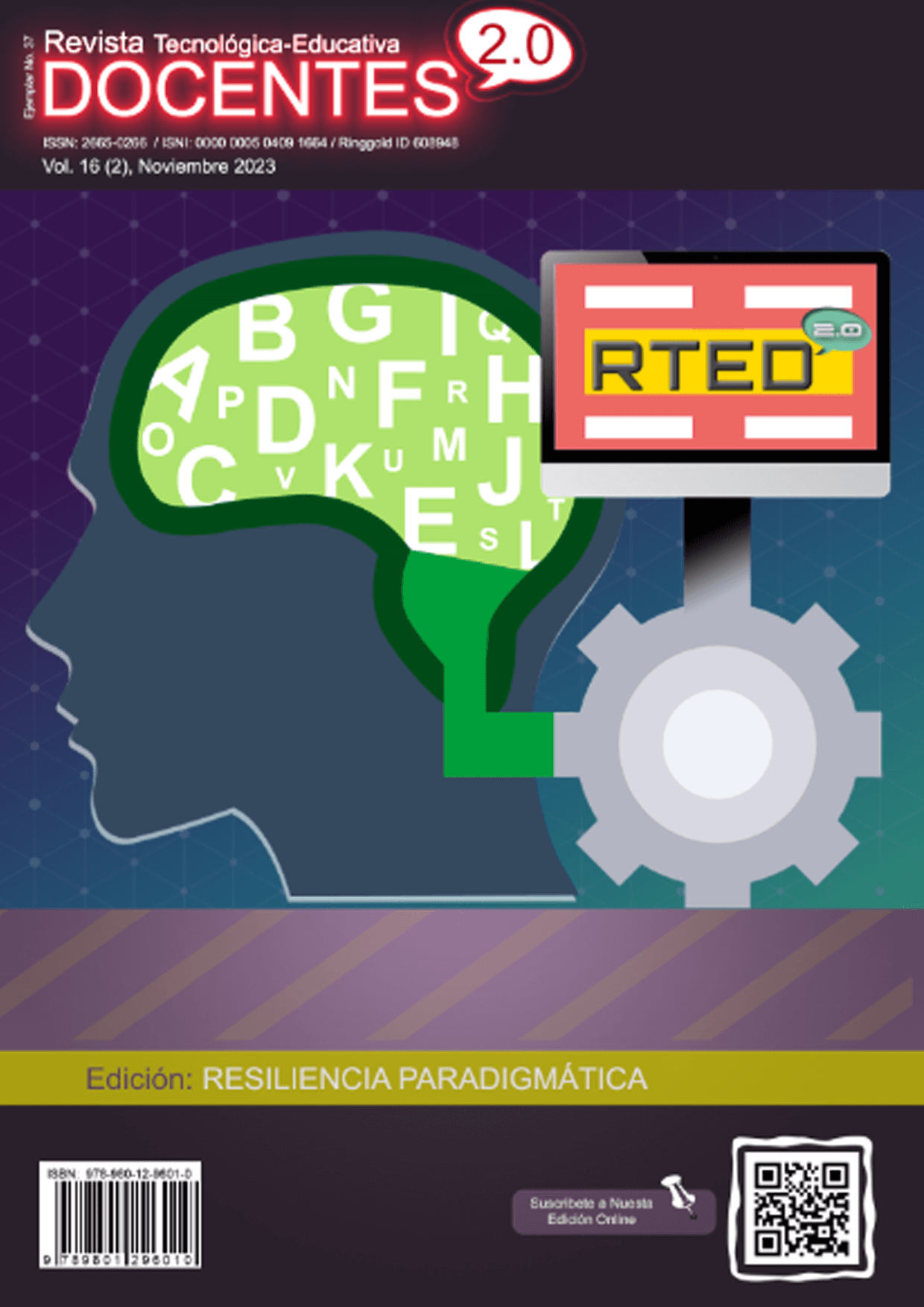Educational Quality from the Perspective of Cultural Identity
 DOI:
https://doi.org/10.37843/rted.v16i2.367
DOI:
https://doi.org/10.37843/rted.v16i2.367
Main Article Content
Abstract
Perfection and educational quality is not static point or an endpoint reached at a certain moment. The essay's objective was to discover and analyze the truth of the cultural roots to identify those values that characterized them as Mexicans before the conquest. This essay is framed under the inductive method, in the humanistic paradigm, with a qualitative approach, and with a topical narrative design, with which it is intended to identify cultural arguments that affect the educational quality of Mexico in Basic Education, as well as present some improvements in the educational process. There are many aspects, approaches, proposals, and educational models that researchers, pedagogues, writers, philosophers, and scholars in educational matters have formulated and that have been implemented over the years in the Educational System of our country, which, without a doubt, They have greatly favored the progress of education in different ways. Still, they have also presented shortcomings and weaknesses that have yet to allow us to fully resolve the educational quality that we so longed for and the problems that we experience daily in institutions.
Downloads
Metrics
Article Details

This work is licensed under a Creative Commons Attribution-NonCommercial-NoDerivatives 4.0 International License.
Those authors who have publications in our journal accept the following terms:
- When a work is accepted for publication, the author retains rights of reproduction, distribution of his/her article for exploitation in all countries of the world in the format provided by our magazine and any other magnetic medium, optical, and digital.
- Authors will retain their copyright and guarantee the journal the right first to publish their work, which will be simultaneously subject to the Creative Commons Acknowledgment License (Attribution-NonCommercial-NoDerivatives 4.0 International (CC BY-NC-ND 4.0)). That allows third parties to copy and redistribute the material in any medium or format, under the following conditions: Acknowledgment - You must properly acknowledge authorship, provide a link to the license, and indicate if any changes have been made. You may do so in any reasonable way, but not in a way that suggests you have the licensor's endorsement or receive it for your use. NonCommercial - You may not use the material for a commercial purpose. NoDerivatives - If you remix, transform, or build from the material, you cannot broadcast the modified material. There are no additional restrictions - You cannot apply legal terms or technological measures that legally restrict you from doing what the license allows.
- Authors may adopt other non-exclusive license agreements to distribute the published version of the work (e.g., deposit it in an institutional archive or publish it in a monographic volume) provided that the initial publication in this journal is indicated.
- Authors are allowed and recommended to disseminate their work through the Internet (e.g., in institutional telematic archives, repositories, libraries, or their website), producing exciting exchanges and increasing the published work's citations.
- Request of withdrawal an article has to be done in writing by the author to the Editor, becoming effective after a written response from the Editor. For this purpose, the author or authors will send correspondence via e-mail: [email protected].
- The author will not receive financial compensation for the publication of his work.
- All Docentes 2.0 Journal publications are under the Open Journal System (OJS) platform at: https://ojs.docentes20.com/.
References
Bonfil-Batalla, G. (1990). México profundo “Una civilización negada”, pp. 42- 43.
Chine, D. (2010). Nuevos caminos del hispanismo. Francia. Fayard, pp. 230.
Conceição, P. (2021). Informe sobre el desarrollo humano 2020/2021. Patria, pp. 45.
Crespo-Mendoza, J. A. (2009). Contra la historia oficial. Historia de broce la historia de México con tintes hecha fábula. Penguin Random House Grupo Editorial, pp. 171.
Delgado de Cantu, G. M. (2006). Historia de México. Editorial: Pearson Educación.
Coll, C. & Valls, E. (1992). El aprendizaje y la enseñanza de los procedimientos. En C. Coll, J. I. Pozo, B. Sarabia & E. Valls, Los contenidos en la reforma (pp.81-132). Santillana.
Dopico, Y. (2007). La formación de valores: eslabón fundamental en el sistema educacional cubano actual.
Hernández, J. (1991). Elogio de la riqueza. Tibidabo, pp. 11.
Gámez, O. (2004). Los proverbios como alternativa en la formación de valores en las clases de idioma inglés. Memorias IV Conferencia Internacional sobre Lenguas Extranjeras, Cultura y Comunicación. Holguín.
Latapí-Sarre, P. (1998). Tiempo educativo mexicano V. Fondo de Cultura Económica.
Nápoles-Vallina, D. (2010). Sistema de actividades para el reforzamiento del valor Responsabilidad en los estudiantes de la Escuela de Hotelería y Turismo “Hermanos Gómez” [Trabajo Final]. Universidad d ciencias pedagógicas “José Martí”. Camagüey.
Prieto, G. (2016). Crónicas tardías del siglo XIX. ?Planeta, pp. 8.
Rodríguez-Ramos, J. (2019). Historia de México 1. Editorial Patria
Rojas-Soriano, R. (2010). El proceso de la Investigación Científica (4ta ed.). Trillas.
Sánchez, E. (2016). Con-Ciencia Ambiental. UAEM, pp. 18.
Unesco. (2016). Educación para la ciudadanía mundial: preparar a los educandos para los retos del siglo XXI. https://unesdoc.unesco.org/ark:/48223/pf0000244957






